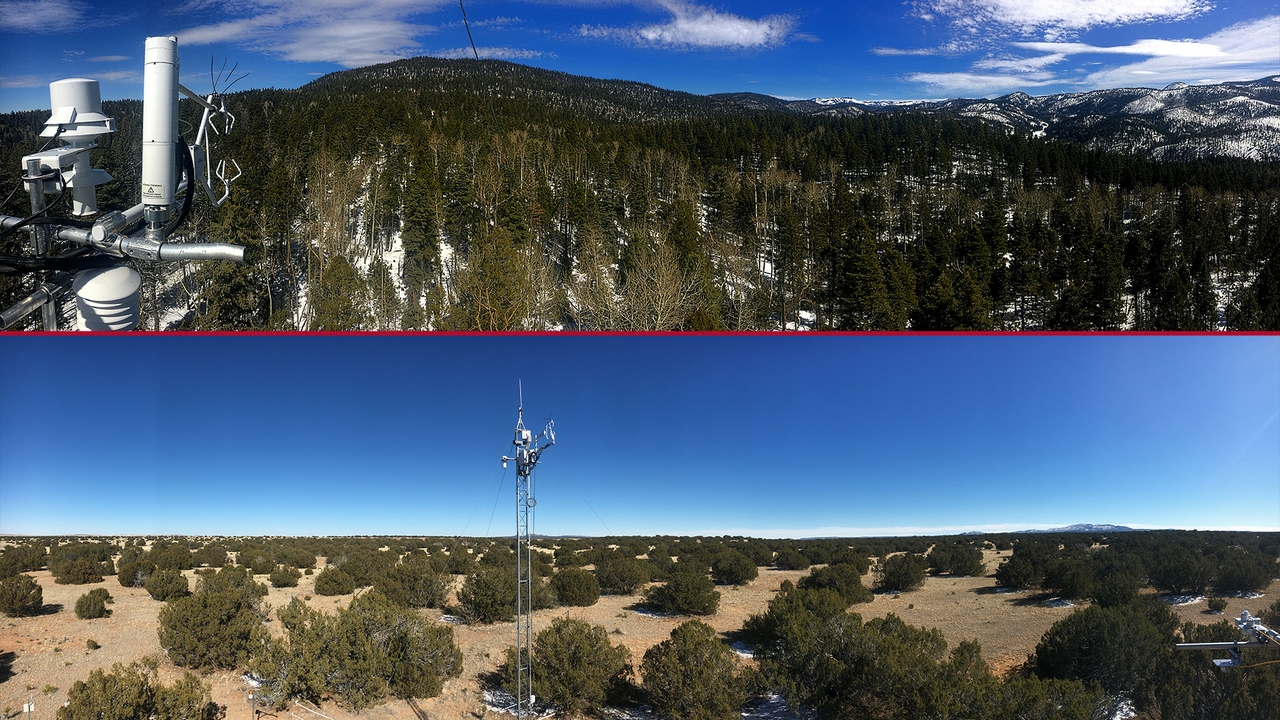DOE grant will support aridlands research
October 22, 2022 - Mary Beth King

William Pockman, professor of Biology at The University of New Mexico, has received a grant from the Department of Energy for $999,990 for a research project titled Empirical measurements and model representation of hydraulic redistribution as a control on function of semiarid woody ecosystems. His collaborators are UNM Biology professor Marcy Litvak, and Yiqi Luo, a professor in the Cornell University College of Agriculture and Life Sciences.
Researchers rely on computer models to understand how forests and other ecosystems contribute to the amount of carbon dioxide in the atmosphere and how their roles may change as climate fluctuates and changes, Pockman explained. In drylands like the southwestern U.S., the predictions of these models are highly dependent on properly predicting the amount of water available to plants in the soil.
This research seeks to improve model predictions of soil moisture at different depths through time and the predictions of ecosystem carbon balance that depend on soil moisture.
“A major focus of the research is a process called hydraulic redistribution, which occurs when water moves from wet areas of the soil to dry areas through tree root systems. By understanding when hydraulic redistribution occurs, and how it affects soil moisture, we can better understand the factors that explain what controls how much carbon trees and ecosystems are able to sequester from the atmosphere,” Pockman said.
The grant supports simultaneous work at field sites and the development of models that incorporate the patterns revealed by the field research. The field activity will measure hydraulic redistribution by the root systems of trees, and the function of those individual trees and the entire ecosystem, as well as small-scale manipulations to estimate what happens to soil moisture without hydraulic redistribution. The modeling activity, based at Cornell University, will use cutting edge data assimilation techniques to train models with observations from the field sites.
